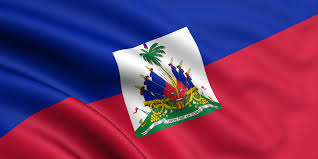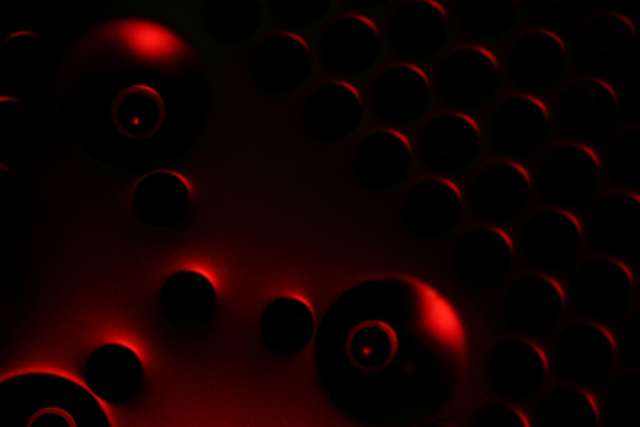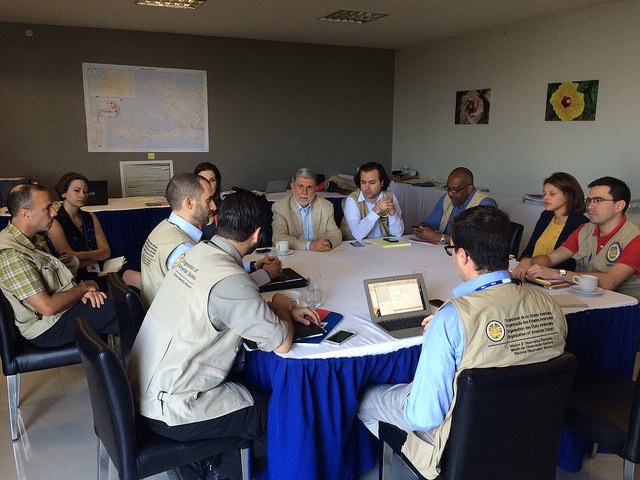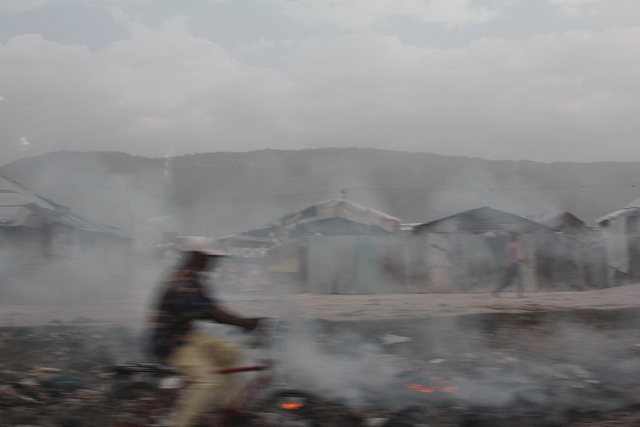“Regime Rotation”: Haiti’s Parliament of Owls Hatches Jocelerme Privert as Interim President

Some things are better done under cover of night. This appears to be when Jocelerme Privert functions best. At 3:43 a.m. on Sunday, February 14, 2016, Mr. Privert got decked in a red-and-blue sash and was sworn in as Interim President of the Republic of Haiti. Only 10 minutes earlier, he was managing his own election by the country’s not-quite fully seated parliament. In this procedure, Mr. Privert functioned not only as a candidate for the position, but also as the speaker of the senate, the chair of the legislative committee of 15 that defined the criteria for the job search, and a voter from the larger legislature.
Apart from Priver’s failure to appreciate the notion of a conflict of interest, other aspects of his rise to the presidency raise doubts about his capacity to conduct free-and-fair elections. In a country where the average assembly worker earns about 45 cents per hour, the candidacy for interim presidency required a fee of $10,000. Consequently, only Privert and one senator sympathetic to Michel Martelly, Edgard Leblanc Fils, were considered for the post. There was one other candidate, Dejean Belizaire, but he did not pay, and he got essentially no votes. Mezi lajan w, mezi wanga w (So much money, so much magic).
The swearing in ceremony for Privert, and everything else that will soon transpire in Haiti unless the population crushes it, were concocted also at night, on February 5-6. Although the Haitian Constitution does not allow for deals between the executive and legislature, Martelly, Privert, and the Speaker of the House signed a plan for the political unraveling of Haiti. Officially, the Organization of the American States (OAS) brokered this agreement, which, if followed, will do away with all remaining legitimate aspects of government and tighten the foreign grip on the country.
According to this midnight deal that foreshadowed Privert’s ascent and forestalled a popular revolt by removing Martelly, the former occupation president gave a goodbye speech and handed his presidential sash to Privert. The real damage is yet to come, and it will be as follows:

1. Designation of a Prime Minister. As the Interim President, Privert will pick Haiti’s next Prime Minister, in consultation with the Speakers of the House and Senate. The choice of PM is important in Haiti, because the PM and his cabinet run the government, not the President, who is the head of the armed forces and whose role is otherwise more ceremonial. With few exceptions, Haiti’s PMs have been foreign-designated and controlled since the 1970s.
2. Creation of an Interim Electoral Council. Privert will appoint, by decree, the members of an Interim Electoral Council (CEP) to manage the new elections. This CEP will do nothing about the highly flawed legislative elections of 2015 but merely carry out a new round of presidential and local elections, without verifying the contested elections.
3. Renewal of United Nations Mission. Although this is not spelled out in the agreement, the schedule of the elections is such that they will not be concluded in time for the spring United Nations General Assembly’s decision about whether or not to renew its Haiti mission (MINUSTAH). Privert will probably ask MINUSTAH to remain in Haiti for yet another year to oversee the elections.
4. In every case above, the parliament will probably rubber-stamp Privert’s decisions.

Jocelerme Privert is not trained in law. He began his career as a tax auditor in Haiti’s Directorate General of Taxation (DGI) during Jean-Claude Duvalier’s regime in 1979. Privert worked his way up the career ladder at the DGI until he became its Director General in 1995. He was named Secretary of State for Finance in 2001 and then Minister of the Interior in 2002 during Aristide’s presidency. This does not imply that he was pro-Aristide. In these capacities, he worked directly under the prime ministers who served the international community while Aristide was president. Privert was elected to the senate in the flawed 2010 elections that brought Martelly to power, and he served as the chair of the senate finance committee for four years. He was presumably elected to the senate again in the fraudulent elections of 2015.
Many of Privert’s political decisions are known. Some of them have been favorable to Martelly. In 2013, Privert was among the senators who abstained from the decision to impeach Martelly in connection with the suspicious death of the Canado-Haitian Judge Jean Serge Joseph, who had been investigating Martelly’s wife and son for allegations of money laundering and other crimes. Privert also came quite close to helping Martelly stay in office until 2021. Currently a Haitian president may only serve two nonconsecutive five-year terms. In 2011, however, Jocelerme Privert participated in a notorious legislative committee to amend Haiti’s Constitution. The committee’s work was scrapped after an alert senator discovered, at the conclusion of a rushed legislative session, around midnight on May 10, 2011, that an amendment to allowconsecutive five-year terms had been kept in writing in the document after the legislators had verbally voted against it.
Jocelerme Privert is most famous for having spent about two years in prison, together with the Lavalas Prime Minister, Yvon Neptune, starting in 2004. Because of the political climate after Aristide’s removal, the two men’s imprisonment was attributed to political persecution and treated as a badge of honor, but they were actually indicted by a judge in September 2005 for their alleged involvement in the massacre of more than 40 people in the neighborhood of La Scierie, in the city of Saint Marc. Some aspects of Privert and Neptune’s incarceration were rather curious. Their imprisonment became a cause célèbre for the foreign mainstream press, even though they were associated with the much maligned Lavalas party. Part of their time in prison under UN orders was spent in a private house that the UN described as being an annex to the National Penitentiary. When they undertook a hunger strike that was broadly publicized, their own lawyer seemed to be unaware of it. The OAS’ Inter-American Court on Human Rights (IACHR) took it upon itself to decide on the case of Yvon Neptune, and it declared that he had been “detained unlawfully and arbitrarily.” This decision is often presumed to be the reason why the case was not pursued. In fact, it was dropped because the Head of the Appeals Court in the city of Gonaives, Judge Hugues Saint-Pierre, was run over by a car in a highly suspicious accident that killed him just as he was about to pronounce his final judgment on the case.
Since the US’ dissolution of Haiti’s parliament in 1917 as part of its first occupation of the country, there has not been another time when Haiti was in greater danger of losing its sovereignty than today. Haiti’s 1987 Constitution serves as an important guide here. Haitian human rights organizations have cautioned again and again that the country’s parliament is being turned into a den of bandits because legislators are immune from criminal prosecution. The La Scierie massacre case is unresolved, as the rights groups continually point out. Therefore, according to the Constitution, Jocelerme Privert cannot hold high office, because this privilege is denied to people who have been indicted for a serious crime. There is an important reason for this. If, for argument’s sake, an organization has evidence to inculpate a high-level Haitian official in an alleged crime, then the organization’s power over Haiti’s government might become absolute via its control of this official. This is not a chance that one ought to take. As numerous Haitian organizations have recommended, the Chief Justice, or his next in command in the Supreme Court, should become the Interim President who leads Haiti through free-and-fair elections. This is not only prudent but also prescribed by Article 149 of the Constitution.

Sources: Haiti Chery | News Junkie Post | Dady Chery is the author of We Have Dared to Be Free | Photographs one and five from OAS; two by Blue Skyz Studios; three by M. Shattock; four and six by Alesa Dam; seven by Alex Proimos; eight by Chad Sparkes; and nine byRon Savage.

